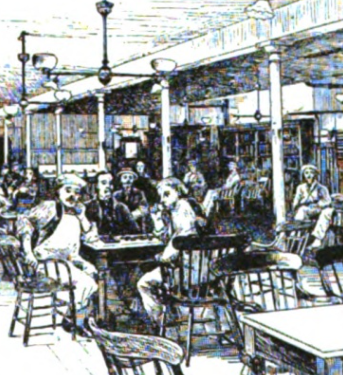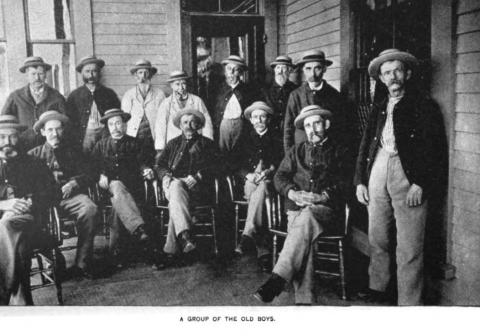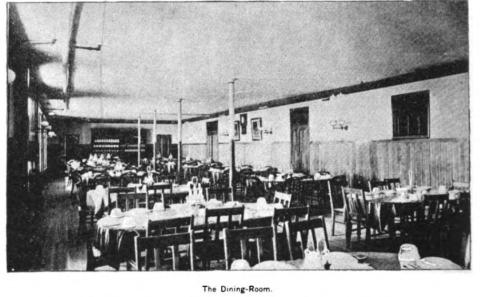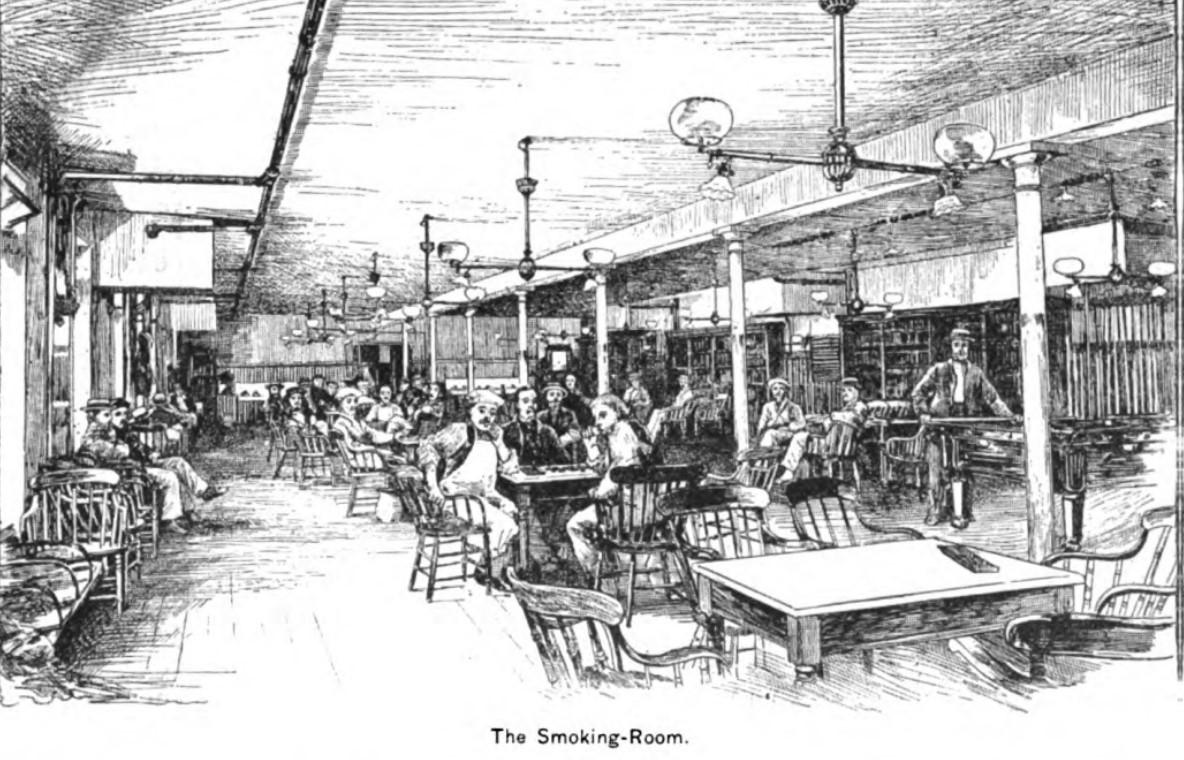
During the Civil War, the United States Sanitary Commission sought information about European policies toward disabled veterans. The resulting report rejected the idea of housing large numbers of men in centralized national institutions, arguing instead that men should return to their local communities and be cared for by their families. What happened was very different from what the Sanitary Commission suggested. Thousands of aging and disabled veterans were housed in various regional branches of the National Home for Disabled Volunteer Soldiers. Others did return home, where–as so often happens–responsibility for caring for disabled loved ones fell to families and local institutions.
Sometimes, however, responsibility fell to the states, between the federal and the local levels. Most states created their own institutions for disabled veterans. In Massachusetts, that institution was in Chelsea, a small city just north of Boston. These men, dependent on the largesse of the state, were among thousands of returning soldiers that many Americans feared could become paupers, drunkards, or criminals.
According to The New England Magazine in 1890, disabled veterans returning from the war “were unable to take up the burdens of life they laid down four years before.” Parents and wives may have died, and “in many instances, homes were broken up.” Pensions were initially too small or unavailable. Some veterans turned to direct assistance from the Grand Army of the Republic. Others lived in the National Homes; yet these quickly filled up.
The Grand Army of the Department of Massachusetts led the charge in 1876, petitioning the state for $100,000 to create a Soldiers’ Home where a disabled veteran would be “treated as an honored guest.” The state responded with $400,000. Still more funds were collected through donations. The state bought the Highland Park Hotel in Chelsea, and on July 25, 1882, the new Soldiers’ Home opened to one-hundred men. In the 1880s, the home grew to include a hospital. The demand for places always exceeded capacity, though by the late 1880s, the Chelsea Home could house 288 men.
Some men were paralyzed; a few were blind. All ate together in a large dining hall. By 1890, 1045 men had been admitted. Of these, 148 had died and were buried in the Soldiers’ Home lot in Malden. The Home benefited from the help of a Ladies’ Aid Association, which, according to The New England Magazine, continued the work done by women during the war for the Sanitary Commission. Their work would “keep the fire of patriotism burning, that the people may not forget the men who stood by the nation in its hour of peril, and who now, in these their latter years, are entitled to their well-earned rest.”
Sources:
- Adams, Captain John G.B. “The Massachusetts Soldiers’ Home.” The New England Magazine, vol.2, no. 6, August 1890, pp.689-697. Internet Archive.
- Handley-Cousins, Sarah. Bodies in Blue: Disability in the Civil War North. Athens, GA: University of Georgia Press, 2019.
- Marten, James. Sing Not War: The Lives of Union & Confederate Veterans in Gilded Age America. Chapel Hill, N.C.: The University of North Carolina Press, 2011.
- “Soldiers’ Home in Chelsea.” Mass.gov.






